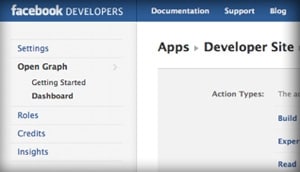How the scam works:
Since its inception, Facebook has been a huge part of peoples’ social lives. When used as a tool to keep in touch and share information with friends and family, Facebook can actually bring people closer together in ways that were impossible before. While Facebook has become an icon of social media, it has largely been able to avoid many of the scams that have infiltrated other internet related uses such as email. However, it appears that is about to change.
Scam Detectors Most Trusted Websites in Online Security
- Guard.io (100): Surf the web safely. Clean up your browser, remove maliscious extensions and check for privacy violations.
- Incogni.com (100): Delete your personal data from the internet and protect against scams and identity theft.
- ExpressVPN (100) Stay secure and anonymous online - Best VPN Out There
Facebook Graph Search (FGS) is a new feature that is going to be introduced to all users later this year. Developed in 2012 and beta tested early this year, FGS is – according to Wikipedia – “a semantic search engine…designed to give answers to user natural language queries rather than a list of links.”
In layman’s terms, FGS is designed to help users find a listing of specific information using common language, such as “People who work in restaurants” or “Single Asian men in Los Angeles”. FGS will allow people to be grouped based on things such as their ‘likes', their posts and their personal information, such as relationship status, education and employment.
This opens up a can of worms that scammers have been anticipating since the first hint of the development of FGS hit the internet. While many scams are transparent from the start, FGS will enable scammers to tailor their scams to seem like legitimate offers.
For example, if you recently purchased a new car, scammers will be able to send you a communication regarding your new car purchase and prompt you to complete a questionnaire – filled with your personal identifying and financial information – to take advantage of a warranty or cash-back offer. Of course, you are only setting yourself up to be the target of identity theft.
How to avoid:
Avoiding this scam is tricky; people tend to use Facebook to rant about things that bother them, or to rave about things they love. While much of this information can seem innocuous, in the hands of a scammer it can be used to fool you into revealing more about yourself than is safe in an online environment.
Probably the best tool to use in the fight against FGS-related scams is to be aware of the information you are posting, and to try and be more non-specific in your posts. For example, instead of saying “Just drove home in my new 2013 Volkswagen Jetta today!” you could say “Yay! New car!” When friends inquire as to which type of car you purchased, you can always reply to them through Facebook’s messaging system to keep it off of your wall.
Another important tool to protect yourself is Facebook’s privacy settings. Most users are not utilizing the privacy settings to their fullest capability. Do some research to discover the best and most comprehensive privacy settings and then put them into place. FGS is coming whether people want it or not, and it is geared to make Facebook usage more personalized and easily navigable. Just be aware of its potential hazards to your privacy and your wallet.
Make your friends and family aware of this scam by sharing it, using the buttons provided.
Verify a website below
Are you just about to make a purchase online? See if the website is legit with our validator:
vldtr®


TOP 4 MUST-WATCH FRAUD PREVENTION VIDEOS
1. Top 5 Amazon Scams in 2024 2. Top 5 PayPal Scams in 2024 3. How To Spot a Scam Email in 2024
- Latest Posts by Selma Hrynchuk
-
Compromised Credit Card Scam
- -
Fake Google Chrome Update
- -
Facebook Privacy Notice Hoax
- All Posts














Thanks for helping out, great info.